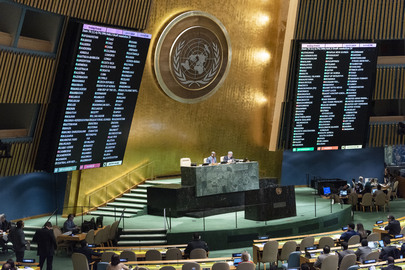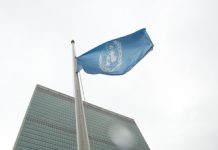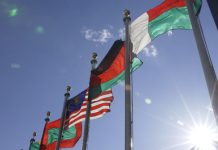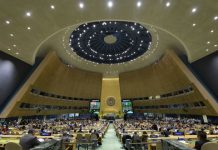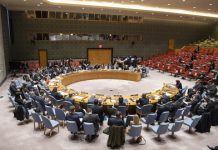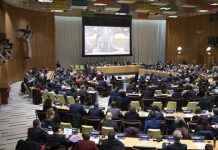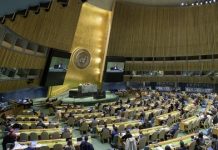“One’s success is everyone’s success” is not just a phrase – it is the core principle behind the India-UN Development Partnership Fund, which is transforming the development landscape for countries in the Global South.
Established in 2017 with an initial pledge of $150 million, the Fund is driven by the Government of India in collaboration with the United Nations.
To date, it has supported 84 projects across 62 countries, tackling issues from green energy to agricultural resilience.
Revolutionising development models
In a world where traditional aid models have often been criticised for their top-down approach, South-South cooperation is a unique framework of horizontal collaboration between developing countries across the southern hemisphere.
By prioritising mutual learning and shared solutions, this model offers an inclusive platform where member countries, international organisations, civil society, and the private sector can collectively tackle global challenges.
“In this challenging global context, South-South and triangular cooperation is opening new horizons for us to catalyse progress,” said Dima al-Khatib, Director of the United Nations Office for South-South Cooperation (UNOSSC), in a recent interview with UN News.
India’s Permanent Representative to the United Nations, Ambassador P. Harish reinforced this sentiment, highlighting India’s commitment as a multicultural, multi-religious, multilingual nation to share its development experiences with other countries in the Global South.
The annual report of the India-UN Partnership Fund presents compelling examples of the projects, in line with the 2030 Agenda for Sustainable Development.
The low-lying island nation, Tuvalu, in the Pacific Ocean is particularly susceptible to higher sea levels caused by climate change.
Renewable energy for island nations
For instance, 11 small island developing States (SIDS) in the Pacific have installed solar energy systems in government buildings, significantly reducing carbon emissions.
“This project will help Fiji move closer to its nationally determined contribution (NDC) target of nearly 100 per cent renewable energy generation by 2030,” said President Williame Katonivere at the inauguration of the solar energy initiative.
This commitment not only supports transition to renewable energy but also aligns with the global push for affordable, reliable, and sustainable energy access, as outlined in Sustainable Development Goal 7 (SDG7).
By relying on solar power, these nations are minimising dependence on imported fossil fuels, freeing up vital resources for other critical development needs.
Strengthened healthcare in Kyrgyzstan
In Kyrgyzstan, the Fund is transforming maternal healthcare in five hospitals through telemedicine and counselling services. The addition of automated systems will improve service quality and simplify processes for patients and medical staff alike.
“This project is very important for the country, as it is aimed at reducing preventable maternal morbidity,” said Meder Ismailov, First Deputy Minister of Health.
With these innovations, Kyrgyzstan is taking bold steps to improve healthcare access and outcomes for women and families.
South-South cooperation has facilitated training and technical guidance for farmers in several African nations.
Enhanced agricultural resilience
In Burkina Faso, a new dam is helping over 8,700 people across 17 villages secure reliable water for agriculture and daily needs.
This intervention has been pivotal for the landlocked nation, where unpredictable rainfall – worsened by the climate crisis – has long hindered food security.
Now, fertile land and steady water supply are transforming lives, fostering both sustenance and economic stability.
As the Director of the UN Office for South-South Cooperation pointed out, “there are so many examples whereby one can sense the growing impact of this.”
Critical juncture
With just five years left to achieve the Sustainable Development Goals (SDGs), the urgency has never been greater, said Ms. al-Khatib.
Initiatives like the India-UN Development Partnership Fund provide a roadmap for transformative change, one that prioritises equity, trust, and sustainability.
This is the moment to amplify these efforts, build on successes, and ensure that no one is left behind in the race toward a sustainable future, she stressed.
Source of original article: United Nations (news.un.org). Photo credit: UN. The content of this article does not necessarily reflect the views or opinion of Global Diaspora News (www.GlobalDiasporaNews.com).
To submit your press release: (https://www.GlobalDiasporaNews.com/pr).
To advertise on Global Diaspora News: (www.GlobalDiasporaNews.com/ads).
Sign up to Global Diaspora News newsletter (https://www.GlobalDiasporaNews.com/newsletter/) to start receiving updates and opportunities directly in your email inbox for free.


